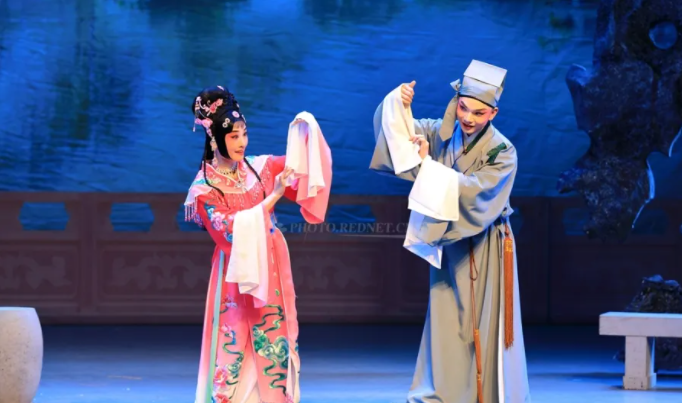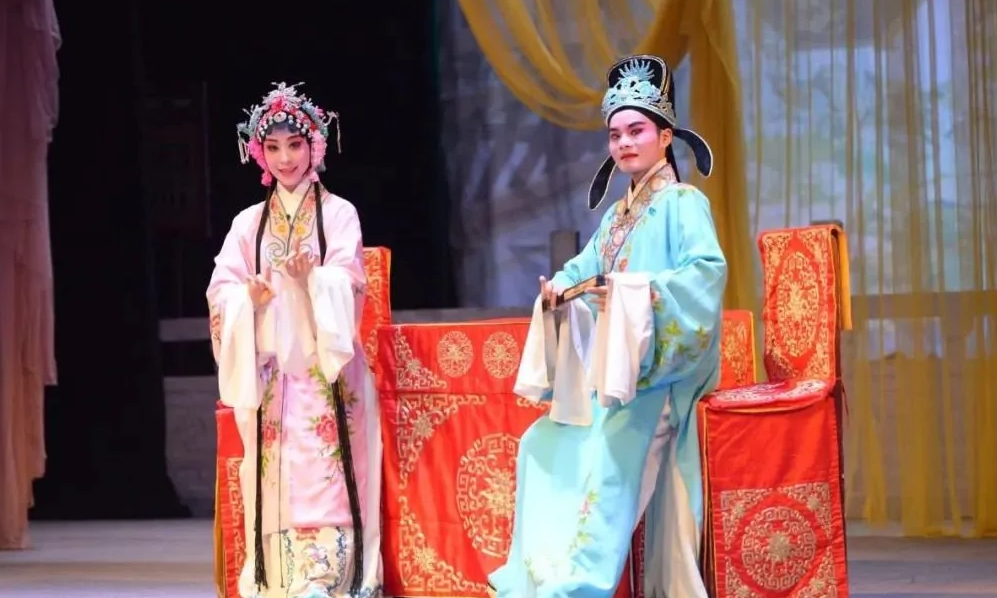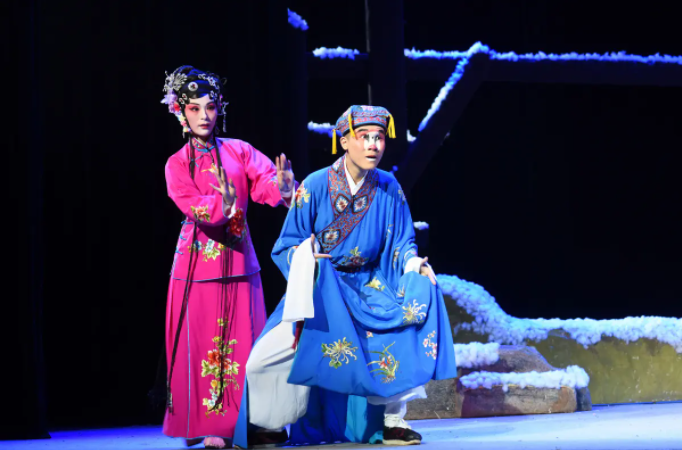| Flower Drum Opera |
| From:衡阳党政门户网 | Date Add in:2025-02-13 17:34:34 [A A] |
|
Flower Drum Opera was originally created by the working people as a folk singing and dancing mode with flexible and diverse forms. The opera performed by a Xiaodan (a young female role in the traditional opera) and a Xiaochou (a comic role in the traditional opera) is called “Dan flower-drum opera” or “Duizi flower-drum opera”.
On this basis, more opera elements such as plots, characters, conflicts, languages, tunes, dances and movements were added in it, which gradually evolved into the flower-drum opera.
However, it has been known as a folk drama for a long time since the Qing Dynasty, with the two-role playlet and three-role playlet as the main. The two-role playlet features roles of Xiaodan and Xiaochou, while the three-role playlet features roles of Xiaodan, Xiaochou and Xiaosheng (young handsome males in the traditional opera). After the founding of the People’s Republic of China in 1949, the Flower Drum Opera further prospered and developed into a large-scale opera.
Hunan Flower Drum Opera boasts diverse melodies, known for its various qupai (the names of the tunes) and forms as well as different dialects, featuring distinctive regional tunes and accompaniment. The tunes are simple, comfortable, cheerful and light-hearted with “Chuandiao” and “Daluoqiang” as its major tunes. Most of the traditional plays are collectively created by people, with themes derived from folklore and rural life. There are about 500 plays handed down in China. According to the difference in popular regions and tunes, drama and stage language, Hunan Flower Drum Opera can be roughly divided into six kinds of operas, including Changsha Flower Drum Opera, Changde Flower Drum Opera, Yueyang Flower Drum Opera, Shaoyang Flower Drum Opera, Hengzhou Flower Drum Opera and Lingling Flower Drum Opera.
All these operas contain several schools with their own artistic characteristics. With the development of Flower Drum Opera, a large number of repertoires and operas emerge, most of which are adapted from myths and legends, folk stories or other local operas. “Liu Hai and Jinchan”, one of Changsha Flower Drum Operas, is a good example. The story of “Liu Hai and Jinchan” is an ancient Chinese folktale, derived from Taoist allusions. It is said that a Jinchan (a fetish that can spit money in Chinese legends) lived in the Sigua Well of Changde City. It often spewed a beam of white light from the well at night, which soared into the sky. A man of virtue could ascend to heaven and become the immortal via this white light. A young man called Liu Hai lived by the well with his mother, who grew up in an extremely poor family but was still kind to others and pious to his mother. He often went to the nearby mountains to cut firewood and sell it to buy rice. One day, a fox spirit in the mountain changed its appearance into a beautiful girl Hu Xiuying and blocked Liu Hai’s way back to ask him to marry her. After getting married, Hu Xiuying wanted to helped her husband get immortality. She used a white pearl as bait and fished in the Sigua Well. As Jinchan bit the bait and jumped out, Liu rode on its back and ascended to heaven as an immortal. |
Co-sponsored by Information Office of Hengyang Municipal People's Government Technical Support & Design:Hengyang Normal University
ICP NO:05002289


